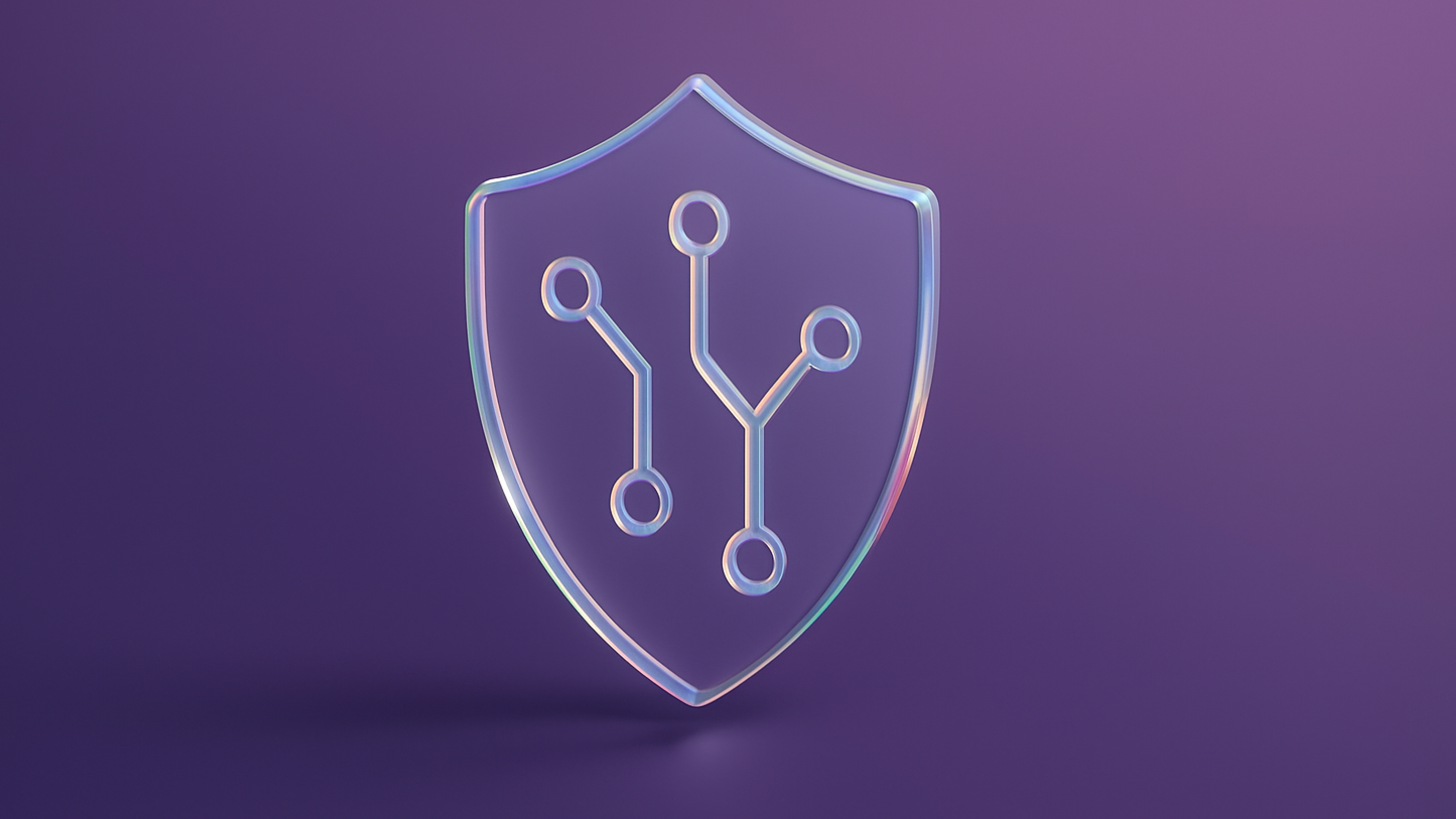The global AI in healthcare market is accelerating, expected to reach $187 billion by 2030. This rapid growth reflects a deeper shift in how care is delivered, as healthcare systems turn to AI technology to improve outcomes, streamline operations, and respond to growing demands for personalization and efficiency. AI capabilities are enhancing surgical decision-making and supporting surgeons during procedures through robotic-assisted surgery.
From advanced diagnostics and drug discovery to virtual assistants and clinical decision support, AI is reshaping nearly every corner of the healthcare ecosystem. The United States leads this transformation, driven by mature health IT infrastructure and a supportive regulatory environment.
Still, trust remains a hurdle. While AI is enabling faster, more accurate care, many patients remain uneasy about its role in clinical decision-making. As adoption expands, the question isn’t just how AI can improve care, but how we build the confidence needed to ensure its success.
Understanding AI Systems in Medical Environments
AI in Healthcare refers to algorithms and software that emulate human cognition to analyze, interpret, and comprehend complex medical data. Unlike traditional systems, AI learns from experience, handles uncertainty, and makes sense of unstructured information.
Think of traditional technology as following a recipe exactly as written, while AI adapts based on available resources and past experiences—a critical distinction in healthcare, where no two patients are exactly alike.
Healthcare AI employs several foundational technologies that work together to transform medical care. Machine Learning algorithms analyze large datasets to identify patterns and make predictions for risk assessment and treatment optimization, utilizing advanced AI analytics.
Natural Language Processing (NLP) in healthcare enables computers to understand human language, extracting information from clinical notes and powering patient-facing chatbots. Computer Vision allows AI systems to analyze medical images like X-rays and MRIs, often detecting abnormalities with accuracy matching human experts. Expert Systems mimic human specialists' decision-making, supporting clinical decisions with evidence-based recommendations.
This shift represents a transition from reactive to proactive and preventive care. AI isn't replacing healthcare professionals—it's extending their capabilities for more precise, efficient, and personalized patient care, ultimately enhancing human connections.
Transformative Technologies Reshaping Patient Care
The healthcare industry is witnessing a transformation through several key AI technologies that enhance medical care in different ways, reflecting the broader impact of AI in business.
Machine Learning & Deep Learning enable healthcare systems to spot patterns in vast medical datasets, facilitating accurate risk scoring and personalized treatment recommendations. Deep learning models, a specialized form of machine learning, excel particularly at handling complex data structures like medical imaging, where they can identify subtle patterns invisible to the human eye.
Natural Language Processing (NLP) allows providers to focus on patients while AI systems generate clinical notes automatically. This technology interprets and processes human language, extracting meaningful insights from unstructured medical texts and enhancing clinical decision support systems with relevant information from medical literature. NLP also enables new modalities for patient interaction, including AI in mental health applications that support therapy and patient outcomes.
Advanced Imaging and Text Analysis
Computer Vision algorithms analyze clinical images with remarkable precision, catching subtle abnormalities that human reviewers might miss. These systems use deep learning algorithms to identify subtle patterns in medical imaging, providing objective measurements of disease progression over time, ensuring consistent evaluation across different providers and care settings, leveraging data-driven insights for improved patient care.
Generative AI & Foundation Models represent the cutting edge of healthcare AI. These sophisticated systems create synthetic data for research, draft clinical protocols, and power conversational AI for patient engagement. Their ability to understand context and generate human-like responses makes them particularly valuable for patient communication. This underscores the transformative impact of AI in revolutionizing healthcare communication.
Healthcare organizations implement these technologies through various platforms, including Nuance Dragon Ambient eXperience (DAX) for NLP-powered clinical documentation, AWS HealthLake for HIPAA-eligible health data services, Google Vertex AI for building and deploying healthcare ML models, and MONAI (Medical Open Network for AI) for healthcare imaging with deep learning.
These technologies drive real improvements in patient outcomes, operational efficiency, and medical research, offering relief to professionals facing burnout while promising patients more accurate diagnoses and personalized experiences through AI.
Practical Applications Revolutionizing Healthcare Today
AI applications in healthcare span from clinical support to operational optimization. The following use cases demonstrate how AI is transforming patient care and healthcare operations today.
1. Ambient Clinical Documentation & Scribing
AI-powered systems capture patient-doctor conversations automatically, saving clinicians up to 1 hour daily and reducing burnout by 60% by eliminating manual note-taking.
2. Diagnostic Imaging & Radiology Triage
AI algorithms prioritize critical cases, flag potential abnormalities, and help radiologists work more efficiently, catching serious conditions earlier.
3. Predictive Analytics for Population Health
AI-driven models utilize predictive analytics with AI to identify who needs help before they get sick by analyzing comprehensive datasets to forecast disease outbreaks and target interventions effectively.
4. Personalized Treatment & Precision Oncology
AI enables personalized treatment approaches by analyzing genetic data, patient history, and treatment outcomes to recommend tailored therapies.
5. Drug Discovery & Trial Design Acceleration
Pharmaceutical companies use AI to analyze chemical libraries and predict efficacy, cutting years off development timelines for new treatments.
6. Hospital Operations & Bed/OR Scheduling
AI optimizes patient flow, bed allocation, and surgery scheduling, reducing wait times and improving resource utilization, demonstrating the role of AI in operational efficiency.
7. Revenue-Cycle & Claims Automation
AI streamlines billing through automated claims processing, error reduction, and proactive identification of billing issues.
8. Virtual Health Assistants & Chatbots
Health care organizations have started to adopt AI-driven virtual health assistants and chatbots to provide 24/7 patient support, answering questions and guiding users to appropriate care resources.
9. Wearables & Remote Monitoring
AI enhances wearable devices by analyzing real-time data to detect anomalies and alert providers for timely intervention.
10. Cybersecurity & PHI Protection
AI-powered security systems detect and respond to potential breaches faster than traditional methods, protecting patient health information.
Case Study: Orchard Partners with Tribe AI to Simplify Lab Reporting with GenAI
Orchard Software, a leading provider of laboratory information systems, partnered with Tribe AI to develop a GenAI-powered reporting interface that simplifies how clinicians generate lab reports. The four-week proof of concept used Claude 2 via AWS Bedrock to create a natural-language-driven tool that replaces complex templates, enabling faster, more intuitive reporting.
Tribe AI’s cross-functional team helped Orchard meet all key success metrics—speed, ease of use, and accuracy—while aligning with healthcare’s strict privacy and safety standards. The collaboration sets the stage for broader GenAI adoption across clinical workflows, from HL7/API development to lab instrument integrations.
Measurable Impact on Healthcare Outcomes
The integration of AI into healthcare systems, particularly AI's ability to enhance medical diagnostics through earlier detection and more accurate diagnoses, offers tangible benefits across clinical, operational, and financial domains. These advantages are already transforming how care is delivered and experienced.
Clinical Outcomes
AI is changing patient care through earlier detection and more accurate diagnoses. Advanced imaging AI has boosted cancer detection sensitivity by 20%, directly improving outcomes. AI tools enhance care quality across specialties, analyzing complex data faster and more accurately than human experts alone.
Operational Efficiency
AI integration drives substantial efficiency improvements. Administrative labor savings from AI could reach USD 150 billion by 2026. Mount Sinai Health System implemented AI-powered alert care tools that resulted in patients being 43% more likely to have their care escalated.
Financial ROI
Healthcare organizations see rapid returns on AI investments. A 2024 KLAS Research study involving 112 healthcare institutions reported an average ROI of 387% within the first year of implementing AI documentation solutions. These tools significantly reduced the time clinicians spent on note-taking, leading to increased revenue and improved documentation quality.
Navigating Ethical and Regulatory Challenges
While AI offers tremendous benefits, it also presents unique challenges that must be carefully managed. Healthcare organizations need robust governance frameworks to ensure responsible AI implementation.
Data Privacy & HIPAA Compliance
AI systems handling sensitive patient information require strict adherence to HIPAA regulations. Organizations must implement secure data handling protocols, establish clear consent processes, and conduct regular security audits.
Healthcare organizations must navigate the challenge of balancing innovation and protection when implementing AI systems, ensuring compliance with regulations like HIPAA.
A cautionary example occurred in 2024 when the Change Healthcare cyberattack happened. A ransomware attack compromised the personal and health data of 100 million individuals, making it one of the largest healthcare breaches ever. It exposed vulnerabilities in AI-integrated systems and highlighted the urgent need for stronger cybersecurity in healthcare.
Bias & Fairness
AI algorithms can perpetuate biases present in their training data, potentially leading to disparate healthcare outcomes, similar to challenges faced in AI content moderation in social media. Healthcare organizations must proactively assess their models for potential biases across demographic factors and ensure training datasets represent diverse populations.
A notable recent study by Penn Medicine and ECRI in 2024 highlighted that healthcare algorithms can unintentionally perpetuate racial biases. The research emphasized the importance of ongoing bias monitoring to ensure equitable patient care.
Regulatory Landscape
The evolving regulatory environment includes FDA Software as a Medical Device (SaMD) rules, EU AI Act provisions, and NIST AI Risk Management Framework guidance. Healthcare organizations must stay informed about these changing requirements, such as those detailed in the EU AI Act guide, to ensure compliance while continuing to innovate.
Hallucinations & Clinical Safety
AI models, particularly large language models, can occasionally produce incorrect information or "hallucinate" responses. This presents serious risks in clinical settings where accuracy is paramount. Organizations implementing AI must establish rigorous testing protocols, maintain human oversight for critical decisions, and develop clear procedures for handling AI-generated errors when they occur.
Strategic Planning for Successful AI Integration
Successfully integrating AI into healthcare requires a thoughtful, strategic approach that leverages technological advancements to transform diagnostic capabilities, improve patient care management, and enhance healthcare operations. This roadmap guides organizations at any stage of their AI journey.
Assess Readiness & Data Quality
Before implementing AI, assess your organization's readiness using resources like the WHO assessment toolkits. Examine data infrastructure, standardization, and interoperability to ensure clean, accessible datasets. Without quality data, even the most sophisticated AI systems will fall short of expectations.
Select High-Value Pilot Use Case
Choose initial AI projects that solve real problems and offer measurable impact, considering strategic alignment, data availability, and technical feasibility. Many organizations start with radiology workflow optimization or predictive analytics because these areas typically have structured data available and offer clear metrics for success.
Build Cross-Functional Team
Assemble a team including clinical experts, data scientists, IT professionals, compliance officers, and change management experts. Consider partnering with external AI specialists to complement internal skills. The diversity of perspectives ensures that solutions address technical requirements while meeting clinical needs and organizational constraints.
Prototype → Validate → Iterate
Start small to learn fast, validating concepts rapidly and gathering user feedback. Use agile methodology to iterate based on real-world performance. This approach minimizes risk while allowing the team to refine solutions based on actual usage patterns and stakeholder input.
Deploy with MLOps / LLMOps Monitoring
Implement robust operations practices for continuous performance monitoring, regular model retraining, version control, and automated testing to maintain AI system reliability. These operational practices ensure that AI systems remain effective and accurate as patterns in data change over time.
Buy vs. Build Decision Matrix
Consider whether to build custom solutions or purchase existing platforms based on data sensitivity, available expertise, timeline needs, and customization requirements. Many organizations adopt a hybrid approach, using vendor solutions for common use cases while developing custom applications for unique organizational needs or competitive advantages.
Creating Optimal Talent and Partnership Strategies
Successful AI implementation in healthcare depends on having the right expertise, either internally or through strategic partnerships. Finding the right balance is important for sustainable innovation.
Key Roles for AI Success in Healthcare
Effective AI initiatives require diverse expertise across several specialized domains. Health Data Engineers work with complex healthcare data systems, ensuring data quality and accessibility.
Clinical Informaticists bridge clinical practice and technology, translating medical needs into technical requirements. AI Ethicists ensure fairness and maintain patient trust through responsible AI practices. Machine Learning Engineers design healthcare-specific AI models that address unique medical challenges.
Healthcare AI Project Managers orchestrate regulatory-compliant initiatives, balancing technical, clinical, and business considerations.
The Power of Partnerships
External partnerships can accelerate progress when internal resources or expertise are limited. Consultancies like Tribe AI offer rapid prototyping capabilities, compliance guidance, cutting-edge expertise, and scalable resources that complement internal teams. These partnerships, including opportunities to join Tribe AI's network, can be particularly valuable for organizations just beginning their AI journey.
Best Practices for Successful Partnerships
To maximize the benefits of external expertise, healthcare organizations should define clear project objectives and success metrics from the outset.
Establishing robust data sharing agreements protects patient privacy while enabling innovation. Involving clinicians throughout development ensures solutions address real-world needs. Planning for knowledge transfer builds internal capabilities over time. Regular assessment of partnership value ensures continued alignment with organizational goals.
Shaping the Intelligent Future of Healthcare
AI is helping healthcare shift from reactive to proactive care, improving diagnostics, reducing administrative burden, and enabling more personalized treatment. But realizing its full potential requires more than technology.
Healthcare organizations must address data privacy, compliance, and patient trust, all while building systems that align with real-world clinical needs.
Tribe AI helps healthcare leaders navigate this complexity with a tailored AI strategy, expert support, and solutions designed for clinical impact. Whether you're scaling innovation or solving for specific challenges, we help turn AI into better care, delivered more efficiently.
Ready to transform your healthcare organization with AI? Connect with Tribe AI's healthcare experts today and start your journey toward intelligent, patient-centered care.












